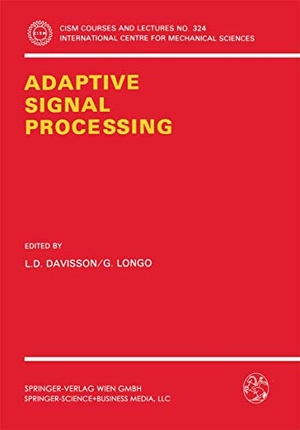Für statistische Zwecke und um bestmögliche Funktionalität zu bieten, speichert diese Website Cookies auf Ihrem Gerät. Das Speichern von Cookies kann in den Browser-Einstellungen deaktiviert werden. Wenn Sie die Website weiter nutzen, stimmen Sie der Verwendung von Cookies zu.
Cookie akzeptieren
Adaptive Signal Processing
- Springer Vienna
- 1992
- Taschenbuch
- 212 Seiten
- ISBN 9783211823330
The four chapters of this volume, written by prominent workers in the field of adaptive processing and linear prediction, address a variety of problems, ranging from adaptive source coding to autoregressive spectral estimation. The first chapter, by T.C. Butash and L.D. Davisson, formulates the performance of an adaptive linear predictor in a series of theorems, with and without the Gaussian assumption, under the hypothesis that its coefficients are derived from either the (single) observation sequence to be predicted (dependent case) or a second, statistically independent realisation (independent case). The contribution by H.V. Poor reviews three recently developed general methodologies for designing signal predictors under nonclassical operating
Mehr
Weniger
zzgl. Versand
in Kürze